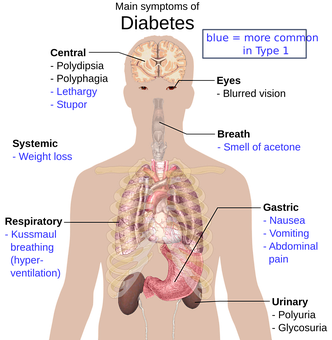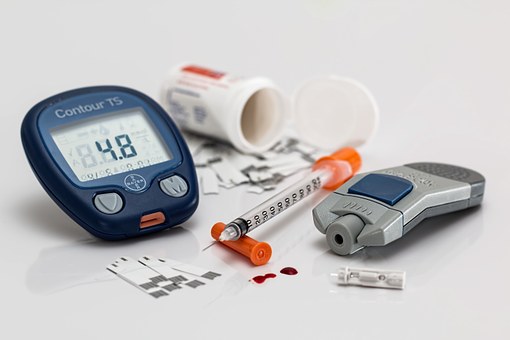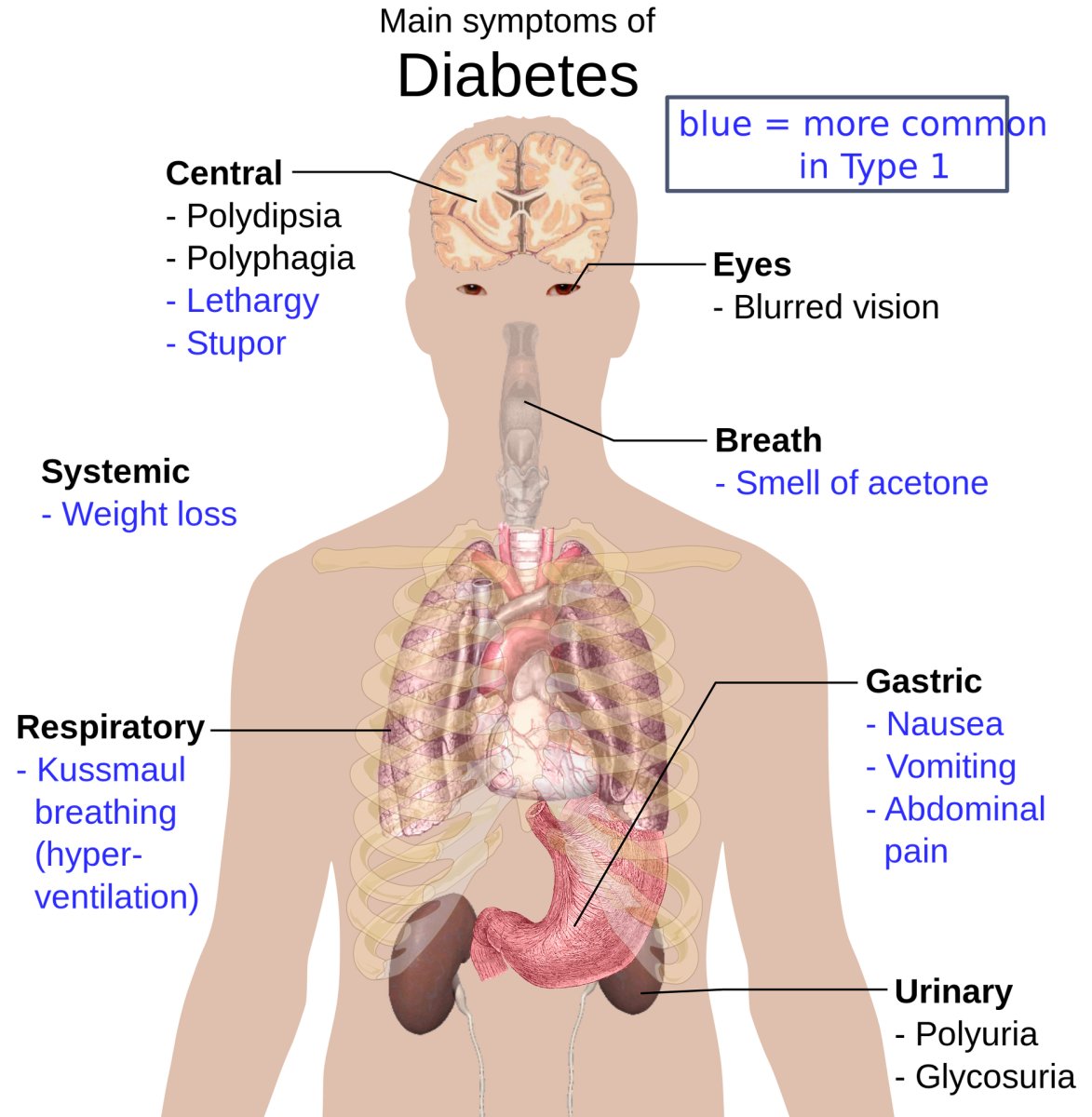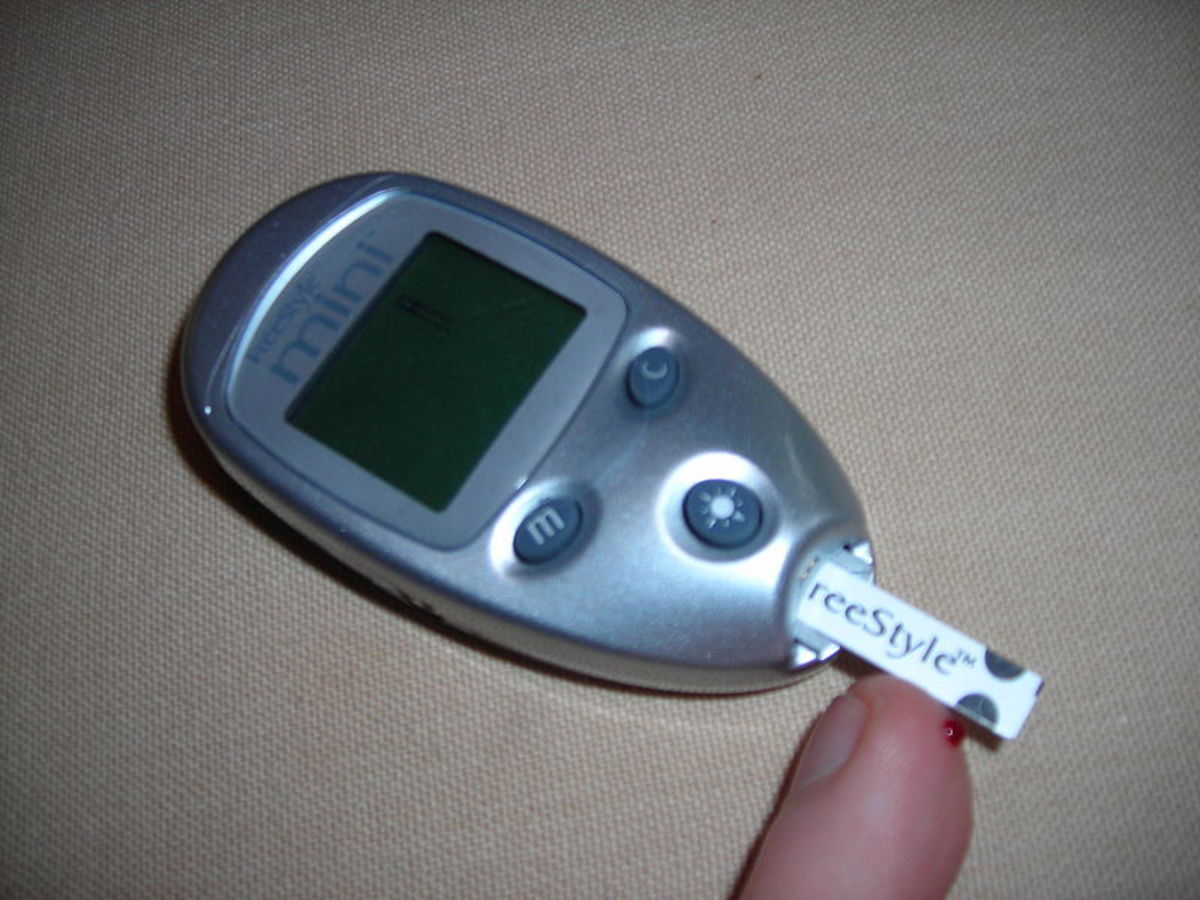Diabetes: Risks if Left Untreated
What is Diabetes Mellitis
Diabetes Mellitus refers to a group of diseases that affect how your body uses blood sugar, also known as glucose. Glucose is your brain's main source of fuel. It is vital to your health because it is an important source of energy for the cells that comprise your muscles and tissues.
If you have diabetes, then you have too much glucose in your blood. This can lead to serious health problems.
Two potentially reversible diabetes conditions include prediabetes (when your blood sugar levels are above normal, yet not high enough to be considered diabetes), and gestational diabetes (which is triggered by pregnancy and may resolve once the baby is born).
Diabetes symptoms vary depending on how high your blood sugar is. Some people, especially those with prediabetes or type 2 diabetes, may not initially experience symptoms. In type 1 diabetes, symptoms tend to come on quickly and be more severe. This article will focus on Type 2 Diabetes.

Recognizing Signs and Symptoms of Diabetes Mellitis
Most people know that Diabetes Mellitis (Type 2) causes increased thirst and can lead to amputation. However, there are many signs and symptoms of Diabetes that people are either not aware of or do not attribute to being related to Diabetes.
Common symptoms:
- Urinating frequently
- Insatiable thirst
- Extreme hunger, even though you are eating
- Blurry vision
- Extreme fatigue/lethargy
- Cuts and/or bruises that heal slowly
- Tingling, numbness or pain in the hands/feet
Insulin, Glucose and Diabetes
Insulin is a hormone. It comes from the pancreas, a gland which is situated behind and below the stomach. The function of the pancreas is to secrete insulin into the bloodstream. The insulin then circulates, enabling sugar to enter your cells.
Insulin lowers the amount of sugar in the bloodstream. As the glucose level drops, so does the secretion of insulin from your pancreas.
Glucose is a sugar. It is a source of energy for the cells that make up our muscles and other tissues. Glucose comes from two major sources: your liver and food. Glucose is absorbed into the bloodstream, where it enters cells with the assistance of insulin.
Your liver stores and makes glucose. When your glucose levels are low, then the liver breaks down stored glycogen into glucose, in order to keep your glucose level within a normal range.
What causes Type 1 diabetes is unknown. We do know that the immune system attacks and destroys the insulin-producing cells in the pancreas. This leaves little or no insulin available to do its job. Instead of sugar being transported into the cells, it builds up in the bloodstream instead.
Are you or a loved one afflicted with Diabetes?
Risk Factors for Developing Type 2 Diabetes
There are risk factors that increase the risk of developing Diabetes.
- Family history - a parent or sibling with Diabetes increase your risk
- Overweight - fatty tissues causes increased insulin resistance
- Inactive lifestyle - physical activity uses insulin and makes cells more sensitive to insulin
- Race - African Americans, Hispanics, American Indians and Asian-Americans are at higher risk although it is unknown why
- Age - As we age, we tend to exercise lessand gain weight
- High blood pressure
- Polycystic ovary syndrome
- Gestational Diabetes
- Abnormal cholesterol and triglycerides
Body Systems Affected by Diabetes

Risk Factors with Long-term Diabetes
The longer you have Diabetes, the greater your risk factors for complications become. Possibly disabling and even life-threatening complications can occur.
- Cardiovascular disese - stroke, angina, heart attack, atherosclerosis (narrowing of the arteries)
- Neuropathy - nerve damage to the capillaries caused by excess sugar in the bloodstream leads to numbness, tingling, burning and pain starting in the tips of the fingers and toes and spreading. This can cause total loss of feeling in affected limbs. When the damaged nerves are in the digestive tract, nausea, vomiting, diarrhea or constipation can occur. Erectile dysfunction can develop in men.
- Nephropathy (kidney damage) - Diabetes can damage the filtering system of the kidneys, leading to failure or end-stage-renal-disease, requiring dialysis or a transplant.
- Retinopathy - the blood vessels of the retina can become damaged, which can lead to blindness. Diabetes also increases the risk of cataracts and glaucoma.
- Skin conditions - increased risk of bacterial and fungal infections.
Diabetes Supplies

Managing Diabetes to Minimize Risks
Managing Diabetes involves keeping your blood sugar levels as close to within the normal range as possible. This is accomplished by making lifestyle changes and possibly taking medication(s).
- Increase physical activity: Work up to 30 minutes of activity most days
- Healthy food choices: Eat lots of fruits and vegetables in a variety of colors, whole grains, low-fat dairy and lean protein sources. Limit fats and sugar. Watch portion sizes.
- Check your blood sugar as recommended by your healthcare provider. Many insurance and diabetic supply companies will provide free testing supplies.
- Blood pressure check: Have your healthcare provider check at each appointment to make sure your numbers are under control.
- Get labwork to check your cholesterol, kidney function and A1c levels. A1c is a measurement of your blood sugar levels over a 3 month time frame. This shows how well controlled your disease is (or isn't).
- Foot checks: Due to the risk of loss of sensation, foot exams are important to check for injuries.
- Eye exams: An annual vision exam is important to check the status of the retina.
- Dental check-ups: A dental exam and cleaning should be performed every 6 months
- Smoking cessation - if applicable
Summary
Diabetes is a complicated, potentially disabling and fatal condition if left untreated. However, managing your condition is possible. It is imperative to follow the recommendations of your health care provider, in order to keep your condition well-controlled for as long as possible. Some individuals are able to successfully control their Diabetes simply by losing weight and increasing physical activity, while others will need to add oral medications or insulin to their daily routine to manage their disease.
© 2017 Michelle Mollohan








